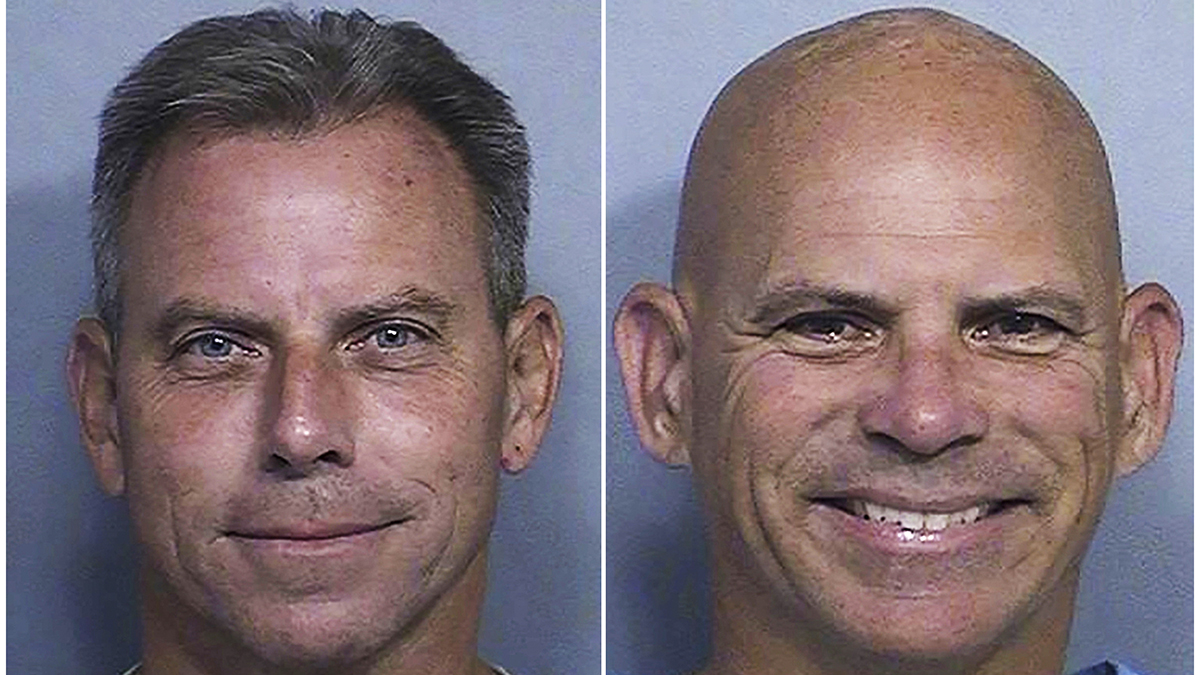George Santos Sentenced: 7 Years for Fraud & Identity Theft
From Capitol Hill to Cell Block: George Santos Gets 7 Years for Fraud
A Shocking Fall From Grace: Santos' Sentencing
Disgraced former U.S. Rep. George Santos, once a rising (or rather, pretending to rise) star in the Republican party, has received his just desserts. On Friday, he was sentenced to over seven years in prison for a string of felony fraud charges. Can you believe it? From posing for photos in Congress to facing a judge, sobbing, as his fate was sealed. What a twist!
U.S. District Court Judge Joanna Seybert didn't mince words during the sentencing. “Where is your remorse? Where do I see it?” she asked pointedly, adding that Santos seemed to blame everyone but himself. It's a classic case of "woe is me" from a man who engineered his own downfall.
The 36-year-old New Yorker, who served a fleeting term in the House of Representatives before being ousted in 2023, had previously pleaded guilty to federal wire fraud and aggravated identity theft. Now, the bill has come due.
The Crimes That Led to Santos' Downfall
Deceiving Donors: A House Built on Lies
Santos’ primary transgression was deceiving donors. He spun elaborate tales about his background, his qualifications, and even his family history, all to win their support and, ultimately, their money. It’s like building a house of cards on a foundation of sand – it was only a matter of time before it all collapsed.
Identity Theft: Targeting Family and Friends
Adding insult to injury, Santos didn’t just lie about himself; he also stole the identities of nearly a dozen people, including his own family members, to further his fraudulent schemes. Think about the betrayal! This wasn't just a political scandal; it was a deeply personal one.
The Plea Deal and Financial Repercussions
Paying the Price: A Hefty Fine and Prison Time
As part of his plea deal, Santos has agreed to pay roughly $580,000 in penalties in addition to his prison sentence. That's a steep price to pay for a career built on deception. It’s a reminder that crime doesn't pay – or at least, not for long.
No Comment: Santos Remains Silent
Reporters' shouted questions were met with silence as Santos was escorted away after the sentencing. Did he have anything to say? Any last-minute explanations? It seems he's content to let his silence speak volumes.
Reactions to the Sentencing
Public Outrage: Justice Served?
The public reaction to Santos’ sentencing has been largely one of relief and a sense that justice has been served. Many feel that he got off too lightly. After all, the man brazenly lied and cheated his way into a position of power. Do seven years truly compensate for the damage he caused?
Political Fallout: A Stain on the Republican Party
Santos’ actions have undoubtedly cast a shadow over the Republican Party. It’s a stark reminder of the importance of vetting candidates thoroughly and holding them accountable for their actions. The party is working to distance itself, but the stink of scandal lingers.
The Judge's Scathing Assessment
Lack of Remorse: A Key Factor in the Sentencing
Judge Seybert's comments about Santos' apparent lack of remorse were particularly striking. Her assessment suggests that she believes Santos has yet to truly grasp the gravity of his actions and the harm he inflicted on others. It's a damning indictment of his character.
Blame Game: Shifting Responsibility
The judge also noted Santos' tendency to blame others for his problems. It’s a common tactic among those who are unwilling to take responsibility for their own mistakes. But in the courtroom, such deflections rarely hold water.
The Aftermath and Lessons Learned
Restoring Trust: A Long and Difficult Road
The George Santos saga highlights the importance of trust in politics. When elected officials lie and cheat, it erodes public confidence and makes it harder to govern effectively. Restoring that trust will be a long and difficult process.
Vetting Candidates: A Crucial Process
One of the key lessons learned from this debacle is the need for more thorough vetting of political candidates. Parties and voters alike must do their due diligence to ensure that those seeking public office are honest, qualified, and committed to serving the public interest.
The Future for George Santos
Life Behind Bars: What Awaits Him?
So, what does the future hold for George Santos? Seven years in prison is a long time. He'll have plenty of time to reflect on his actions and, perhaps, finally develop a sense of remorse. Time will tell if he'll ever be able to rebuild his life after this spectacular fall from grace.
A Political Pariah: Can He Ever Recover?
It's hard to imagine George Santos ever returning to public life. His reputation is irreparably damaged, and he has alienated virtually everyone who once supported him. He's become a political pariah, a cautionary tale for aspiring politicians everywhere.
The Broader Impact on American Politics
Erosion of Trust: A Growing Problem
The Santos scandal is just one example of a broader trend in American politics: the erosion of trust in institutions and elected officials. Cynicism and disillusionment are rampant, and it's becoming increasingly difficult to engage citizens in the political process.
The Role of Social Media: Amplifying the Noise
Social media has played a significant role in amplifying the noise and polarization of American politics. False information and conspiracy theories spread like wildfire, making it harder to distinguish fact from fiction. Santos was adept at using social media to craft a false image, but it ultimately contributed to his undoing.
Conclusion: A Cautionary Tale of Deceit and Downfall
The George Santos story is a cautionary tale of deceit, ambition, and the inevitable consequences of one's actions. His meteoric rise and even more spectacular fall serve as a reminder that honesty and integrity are essential qualities for anyone seeking public office. While he faces the next seven years behind bars, American politics faces a new challenge in combating misinformation and deception from those who seek to lead. His story will be a lesson for generations to come.
Frequently Asked Questions (FAQs)
1. What specific crimes was George Santos convicted of?
George Santos was convicted of federal wire fraud and aggravated identity theft. These charges stemmed from his deceptive fundraising practices and his use of stolen identities to fund his campaign.
2. How much money did Santos have to pay in penalties?
As part of his plea deal, Santos agreed to pay approximately $580,000 in penalties, in addition to serving his prison sentence.
3. What was the Judge's reasoning behind the 7-year prison sentence?
Judge Seybert cited Santos' apparent lack of remorse and his tendency to blame others as key factors in her decision to impose a lengthy prison sentence. She felt he hadn't taken full responsibility for his actions.
4. Will George Santos ever be able to hold public office again?
It's highly unlikely that George Santos will ever be able to hold public office again. His reputation has been severely damaged, and he has likely lost the trust of voters and political allies alike. While not explicitly forbidden, the political landscape makes a comeback virtually impossible.
5. What impact will the Santos case have on future elections?
The Santos case will likely lead to increased scrutiny of political candidates' backgrounds and qualifications. Parties and voters may be more vigilant in vetting candidates to ensure they are honest and trustworthy. It also highlights the need for campaign finance reform.


